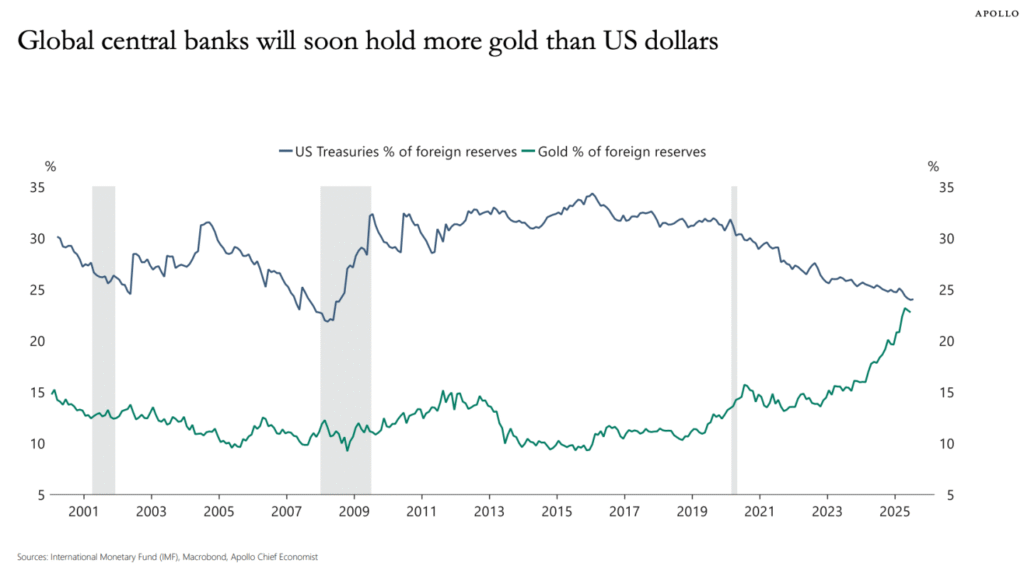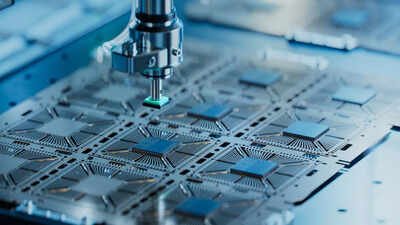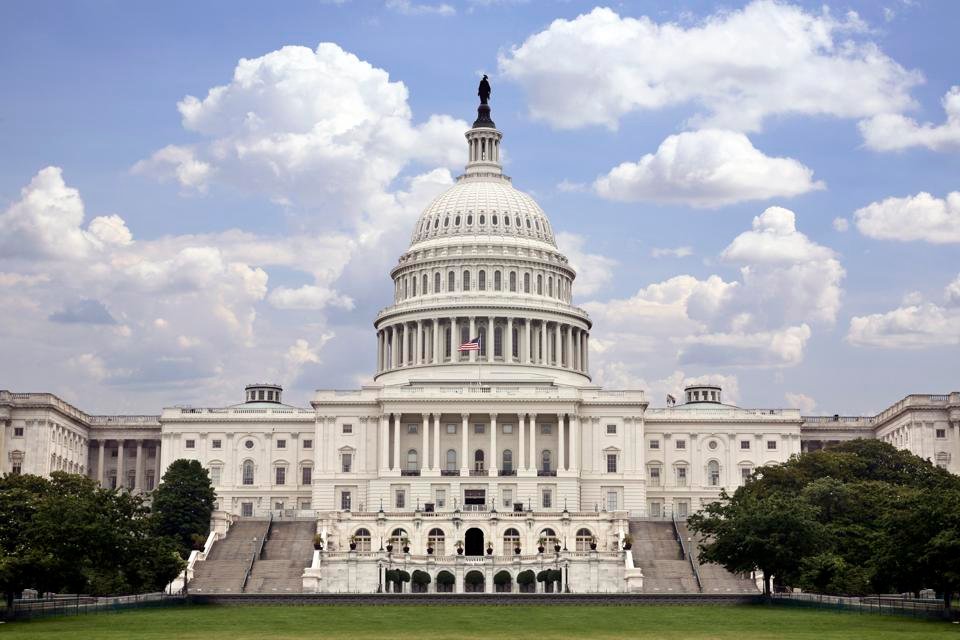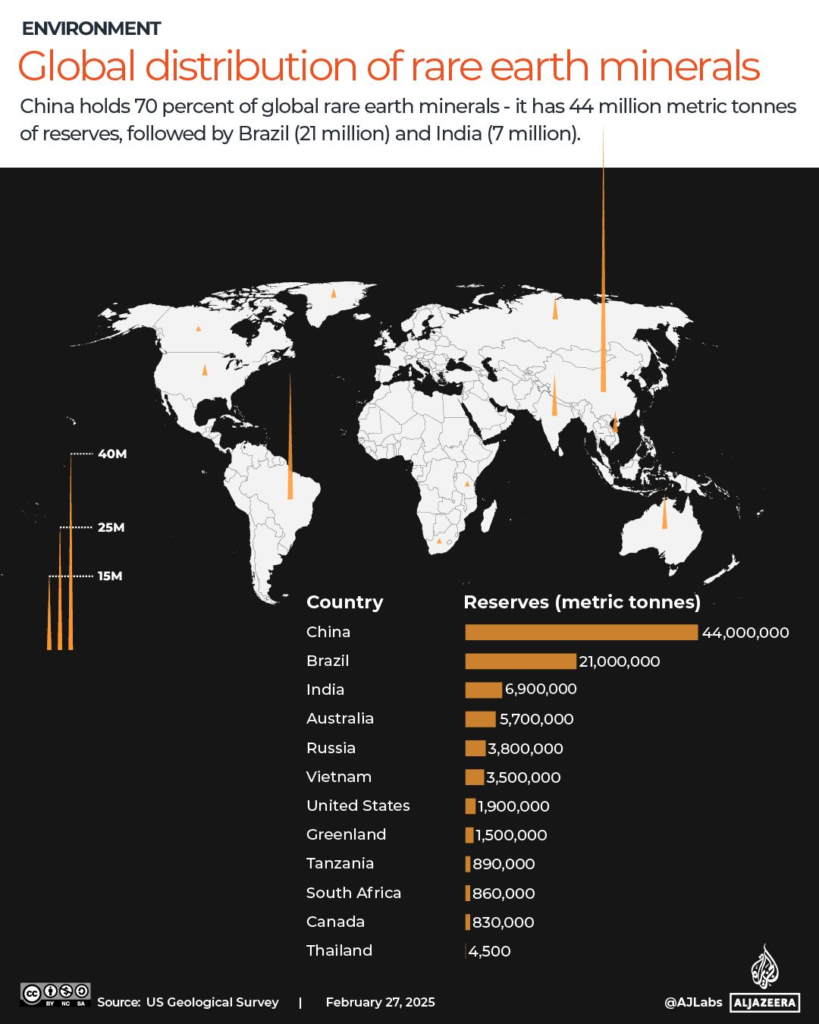President Trump and Australian Prime Minister Anthony Albanese signed the framework of the critical minerals deal Monday that aims to boost US access to both the mining and processing of Australian rare earth resources.
It was a move aimed squarely at China — which recently moved to choke off its own rare earth mineral exports — and is set to be just the first display of friendliness between Trump and China’s regional adversaries in the days ahead.
“We’ll be doing a little bit of a tour,” Trump said Monday at the White House. “I’ll be in Malaysia. I’ll be in Japan.”
It’s a coordinated string of diplomatic outreach that — far from coincidentally — comes as the anticipation grows for a meeting between Trump and Chinese President Xi Jinping set for next week in South Korea.
Trump in recent days listed the array of tricky issues on the table between the US and China. Those include a wish for increased soybean purchases from the US, a crackdown on fentanyl, questions around Taiwan, the race for AI dominance, and, of course, that thorny issue of China’s recent moves to close off its rare earth exports globally.
“I don’t want them to play the rare earth game with us,” Trump told reporters as he flew back to Washington on Sunday evening.
Trump noted Monday that China may offer threats over the rare earths issue. But, he added, his counterthreat would be triple-digit tariffs. “I could threaten them with many other things,” he added.
Read more: How Trump’s tariffs affect your money
Trump’s success in reaching out to these Chinese rivals remains far from certain. That’s because many remain unhappy with Trump’s tariffs.
Analysts are also often quick to note that China holds significant leverage of its own, starting with its near monopoly — 90% of the market, by some estimates — on both the mining and processing capacity to produce these rare earth minerals that are key for modern electronics.
“Even with the ongoing flurry of efforts to reshore/onshore/friendshore rare earths production, the U.S. is still many years away from self-sufficiency,” Ellen Ehrnrooth and Ed Mills of Raymond James noted in a recent analysis.
They added that Chinese access to US semiconductors is likely to be another item on the agenda at China’s behest.
Until then, Trump’s tour with China’s neighbors is set for the days ahead.
This weekend, the president is scheduled to travel to Malaysia for a gathering of the Association of Southeast Asian Nations (ASEAN). This alliance of 10 countries in Southeast Asia is often promoted as an economic counterbalance to China.
It’s a stop that will also see Treasury Secretary Scott Bessent meeting directly with his Chinese counterparts in Malaysia. This will continue to set the table for the meeting the following week between the two presidents.
Bessent called a first meeting last week in Washington with Chinese Vice Premier He Lifeng “frank and detailed.”
Also on the President’s itinerary is Japan, as well as the Asia-Pacific Economic Cooperation (APEC) summit in Gyeongju, South Korea.
That final gathering is scheduled to run throughout the coming week and will be attended by both President Trump and Xi — where they are scheduled to meet on the sidelines.
Trump’s tour is just one of many diplomatic efforts to set the agenda for next week’s meeting. China has its own ongoing diplomatic efforts, as well as the 20th Central Committee of the Communist Party of China plenary session in Beijing this week.
Read more: 5 ways to tariff-proof your finances
It remains to be seen how much the agreement with Australia — which promises to provide at least $1 billion in financing and increase cooperation starting over the next year in new extraction and processing efforts — will be able to close the gap if China continues its restrictive stance.
“It’s all about de-risking,” top Trump economic adviser Kevin Hassett told reporters Monday of the meeting. “Australia is really, really going to be helpful in the effort to take the global economy and make it less risky, less exposed to the kind of rare earth extortion that we’re seeing from the Chinese.”
Trump has also repeatedly talked up his relationship with President Xi. He has suggested that the meeting could even result in a new wide-ranging deal — not just avert escalation, but improve relations.
“It’s going to be very exciting,” Trump noted Monday of the meeting, adding, “I think we’ll work out something good for both countries,” even as he again refused to rule out moving forward with the 100% additional tariffs he has promised to put into effect on Nov. 1.
It’s the latest in a series of comments that have cheered markets — for now. But the happy talk has led some analysts to warn that tensions between the world’s two largest economies could quickly rise again.
“Trump’s more than willing to take short-term pain for long-term gain on both,” Terry Haines of Pangaea Policy wrote to clients this week. He added that recent comments from Trump that tariffs are unsustainable may not mean the end to tensions.
The administration’s view is that “high US tariffs are ‘unsustainable’ *for China*,” Haines wrote, adding that “tariffs remain major US geopolitical and economic leverage that’s not going to be unilaterally abandoned.”
Ben Werschkul is a Washington correspondent for Yahoo Finance.
Read the latest financial and business news from Yahoo Finance








